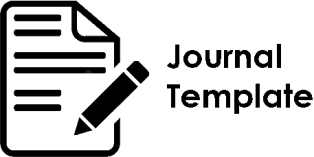The Islamic Emirate Of Afghanistan 1.0: A Study on Islamic Government Practices under the Taliban 1996- 2001
DOI:
https://doi.org/10.29240/ajis.v8i1.6134Keywords:
Afghanistan, Islamic Goverment, TalibanAbstract
Downloads
References
Adam, Fadzli, et al., “Polemics of the Islamic Caliphate: A View From Ali Abd. Al-Raziqâ€, Mediterranean Journal of Social Sciences, (6) 4- 2, 2015
AFP, “Taliban Reject Warnings of Aid Pull Outâ€, AFP, July 16, 1998
Ali, Idrees, “Taliban could Isolate Kabul in 30 Days, Takeover in 90 - U.S. Intelligenceâ€, Reuters, August 11, 2021. Accessed from the page https://www.reuters.com/world/asia-pacific/taliban-could-isolate-kabul-30-days-takeover-90-us-intelligence-2021-08-11/
Arsyad, Fahmi, KONSEP NEGARA MENURUT PEMIKIRAN NURCHOLIS MADJID (Telaah Asas Keislaman, Keindonesiaan, & Kemodernan Serta Relevansinya Terhadap Model Tata Negara Indonesia). Thesis, UIN Salatiga, 2022.
BBC News, â€Profile: Mullah Mohammed Omarâ€, September 18, 2002, on www.bbc.co.uk/hi/english/world/south_asia/newsid_1550000/1550419.stm.
BBC, “Afghanistan: Taliban spokesman Suhail Shaheen calls the BBC - interview in fullâ€, BBC News, August 16, 2021. Accessed from the page https://www.bbc.com/news/av/world-asia-58223530
Benard, Cheryl, et al, “Economic Participation and Women", in Women and Nation-Building, 1st ed., Washington: RAND Corporation, 2008, p. 81–106
Bockstette, Carsten. “Taliban and Jihadist Terrorist Use of Strategic Communication.†Connections, 8: 3 (2009), p. 1–24
Brentjes, Burchard, et al., Taliban: A Shadow over Afghanistan, Varanasi, India: Rishi Publications, 2000
CFR, “The U.S. War in Afghanistan: 1999 – 2021â€, Center of Foreign Relation, Accessed from the page https://www.cfr.org/timeline/us-war-afghanistan September 28, 2021.
Crossette, Barbara, “UN’s Impatience Grows over Afghan restrictions on Aid Workersâ€, The New York Times, July 14, 1998
Dawn, “Pakistan not Backing Taliban Says Bhuttoâ€, Dawn, March 18, 1995
Dobbins, James, et.al., “AFGHANISTAN" in America’s Role in Nation-Building: From Germany to Iraq, 1st ed., Washington: RAND Corporation, 2003
Greve, Joan E., & Borger, Julian, “Biden says US troops may stay in Afghanistan beyond 31 August deadlineâ€, The Guardian, 19 Aug 2021. Accessed from the page https://www.theguardian.com/us-news/2021/aug/18/biden-us-troops-afghanistan-31-august-deadline
Griffin, Michael, Reaping the Whirlwind: The Taliban Movement in Afghanistan, London: Pluto Press, 2001
Gunaratna, Rohan. “Responding to the Post 9/11 Structural and Operational Challenges of Global Jihad.†Connections, 4: 1 (2005), p. 9–42
Labeviere, Richard, Dollars for Terrors: The United States and Islam,(New York: Algora Publishing, 1999
Maley, William, (ed.), Fundamentalism Reborn?: Afghanistan and the Taliban, London: Hurst & Company, 1998
Maroofi, Musa M., “The Afghan Taliban: Like It or Not, It Occupies Two-thirds of Afghanistan and No Sign of Weakeningâ€, Washington Report, April 1998.
Marsden, Peter, The Taliban: War, Religion and the New Order in Afghanistan, New York: Zed Books Ltd., 1998
Mashal, Mujib, and Richard Pérez-Peña, “Taliban Promise Peace, but Doubt and Fear Persistâ€, The New York Times, Aug 17, 2021. Accessed from the page https://www.nytimes.com/2021/08/17/world/asia/taliban-leaders-kabul.html
Mc Girk, Tim, “Mullah with a Missionâ€, Time, March 31, 1997
Mellen, Ruby, “The Shocking Speed of the Taliban’s Advance: A Visual Timelineâ€, The Washington Post, August 16, 2021. Accessed from the page https://www.washingtonpost.com/world/2021/08/16/taliban-timeline/
Metcalf, Barbara D., “Traditionalist Islamic Activism: Deoband, Tablighis, and Talibsâ€, in ISIM Papers 4, Leiden: ISIM, 2002
Nojoumi, Neamatollah, The Rise of the Taliban in Afghanistan, New York: Palgrave, 2002
Physicians for Human Rights, The Taliban’s War on Women: a Health and Human Rights Crisis in Afghanistan, Boston: PHR, 1998, p. 89-97
Pilch, Frances. “The Potential Role of Women in Contributing to Countering Ideological Support for Terrorism: The Cases of Bosnia and Afghanistan.†Connections, 5: 4 (2006), p. 107–130
Rashid, Ahmed, Taliban: Militant Islam, Oil and Fundamentalism in Central Asia, New Haven and London: Yale Nota Bene, 2001
Ridgeway, James, “The French Connectionâ€, Village Voice, January 2, 2002. Accessed from the page www.villagevoice.com/issues/0201/ridgeway.php
Rubin, Barnett, et al., “Afghanistan: Reconstruction and Peace-building in a Regional Frameworkâ€, in KOFF Peacebuilding Reports, Vol. 1/2001, June 2001.
Sachedina, Abdulaziz Abdulhussein, “Imamahâ€, The Oxford Encyclopedia of the Modern Islamic World. 2, 1995, p. 183-185.
Santoso, Agus Edi, Tidak ada negara Islam: surat-surat politik Nurcholish Madjid-Mohamad Roem / penyunting, Agus Edi Santoso; foreword by, Ahmad Syafii Maarif and Adi Sasono, Jakarta: Djambatan, 1997
Soriano, Manuel R. Torres, “Jihadist Propaganda and Its Audiences: A Change of Course?â€, Perspectives on Terrorism , 1: 2 (2007).
The Nation, “Benazir Bhutto Denies Support to the Talibanâ€, The Nation, February 18, 1995
Tsani, Burhan, Hukum dan Hubungan Internasional, Yogyakarta; Liberty,1990.
UN Security Council, Statement by the President of the Security Council, February 15, 1996, and see also Security Council, Resolution 1076 (1996), October 22, 1996.
Wehr, Hans, A Dictionary of Modern Written Arabic, Beirut: Librairie du Liban, 1980
Downloads
Published
How to Cite
Issue
Section
Citation Check
License
Authors who publish with this journal agree to the following terms:- Authors retain copyright and grant the journal right of first publication with the work simultaneously licensed under a Creative Commons Attribution License (CC BY-NC-SA 4.0) that allows others to share the work with an acknowledgment of the work's authorship and initial publication in this journal.
- Authors are able to enter into separate, additional contractual arrangements for the non-exclusive distribution of the journal's published version of the work (e.g., post it to an institutional repository or publish it in a book), with an acknowledgment of its initial publication in this journal.
- Authors are permitted and encouraged to post their work online (e.g., in institutional repositories or on their website) prior to and during the submission process, as it can lead to productive exchanges, as well as earlier and greater citation of published work (See The Effect of Open Access).







